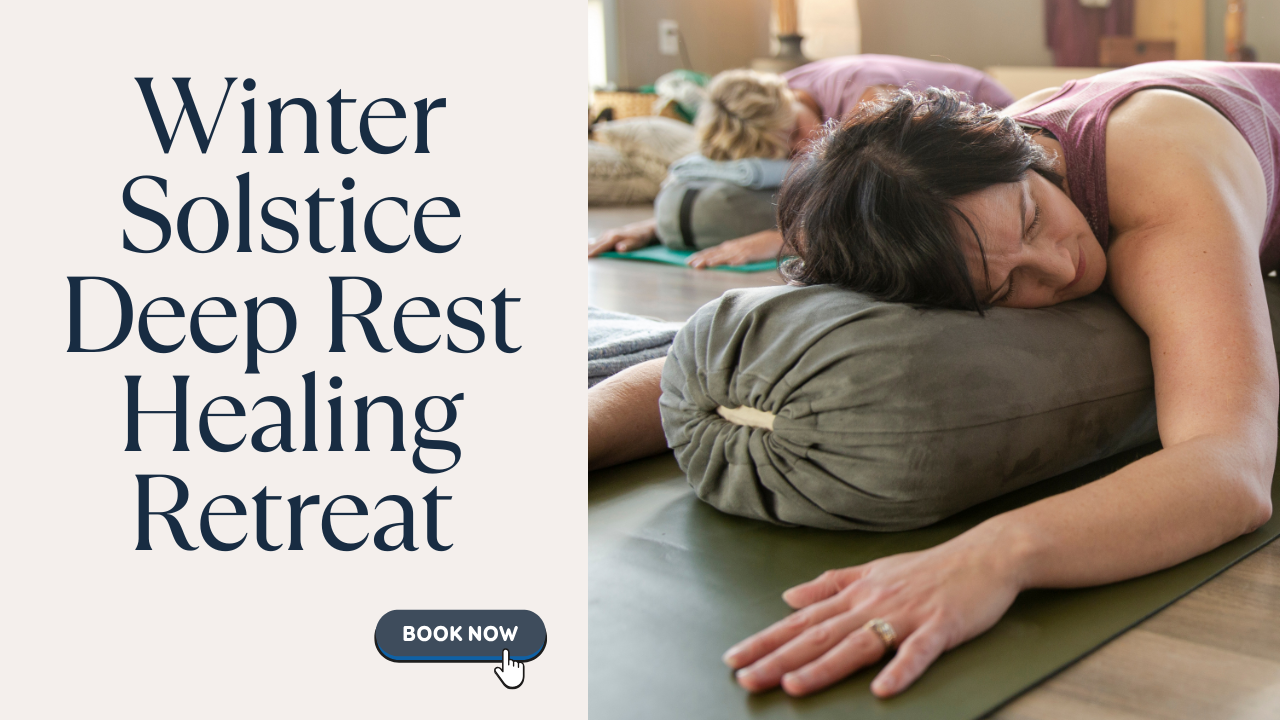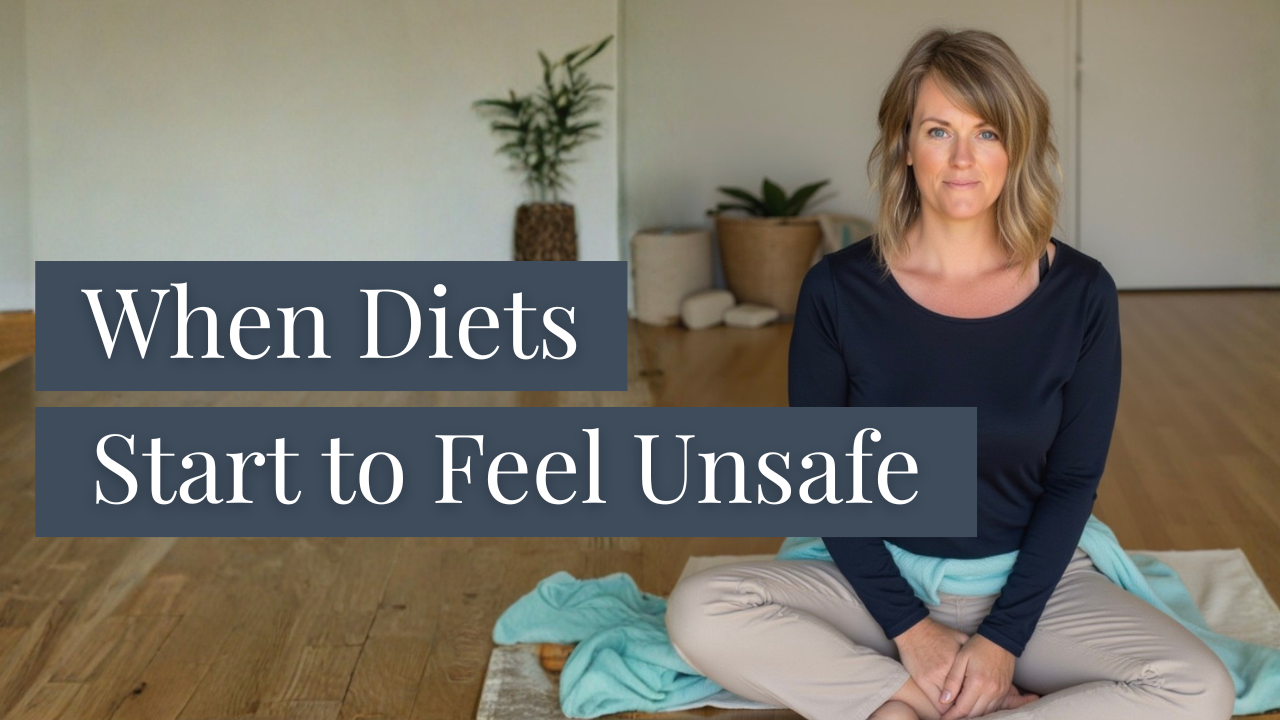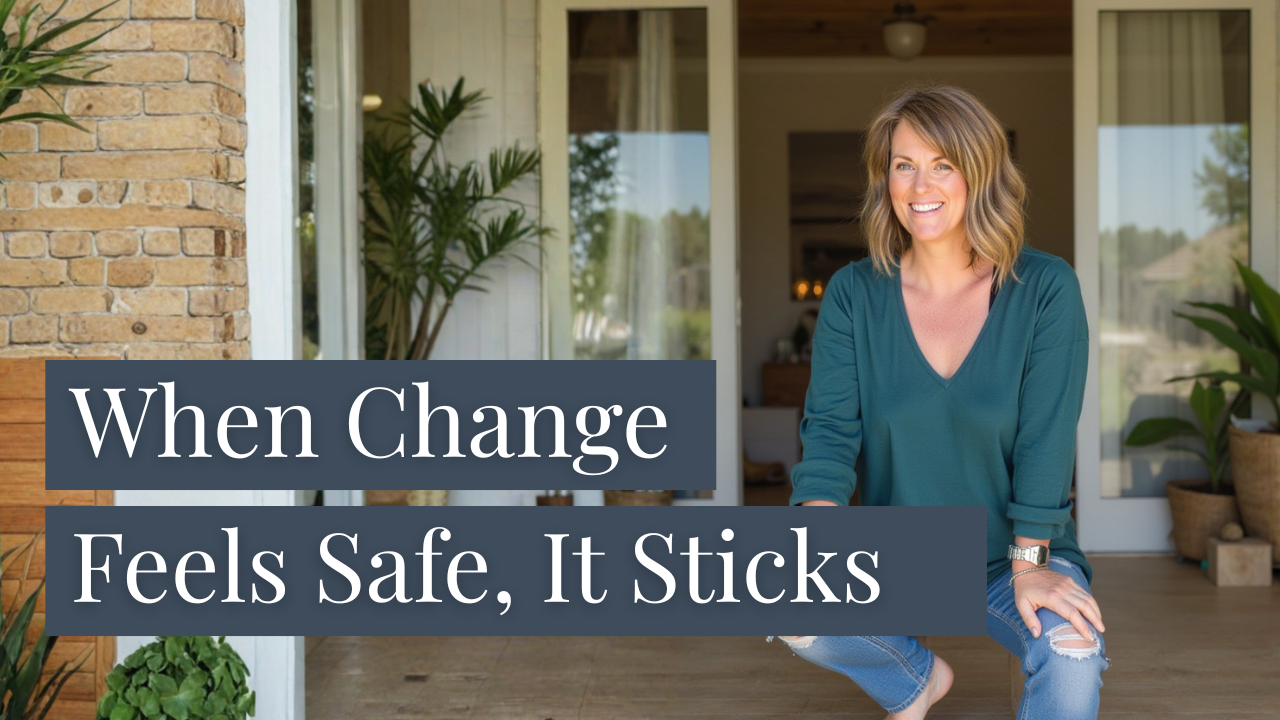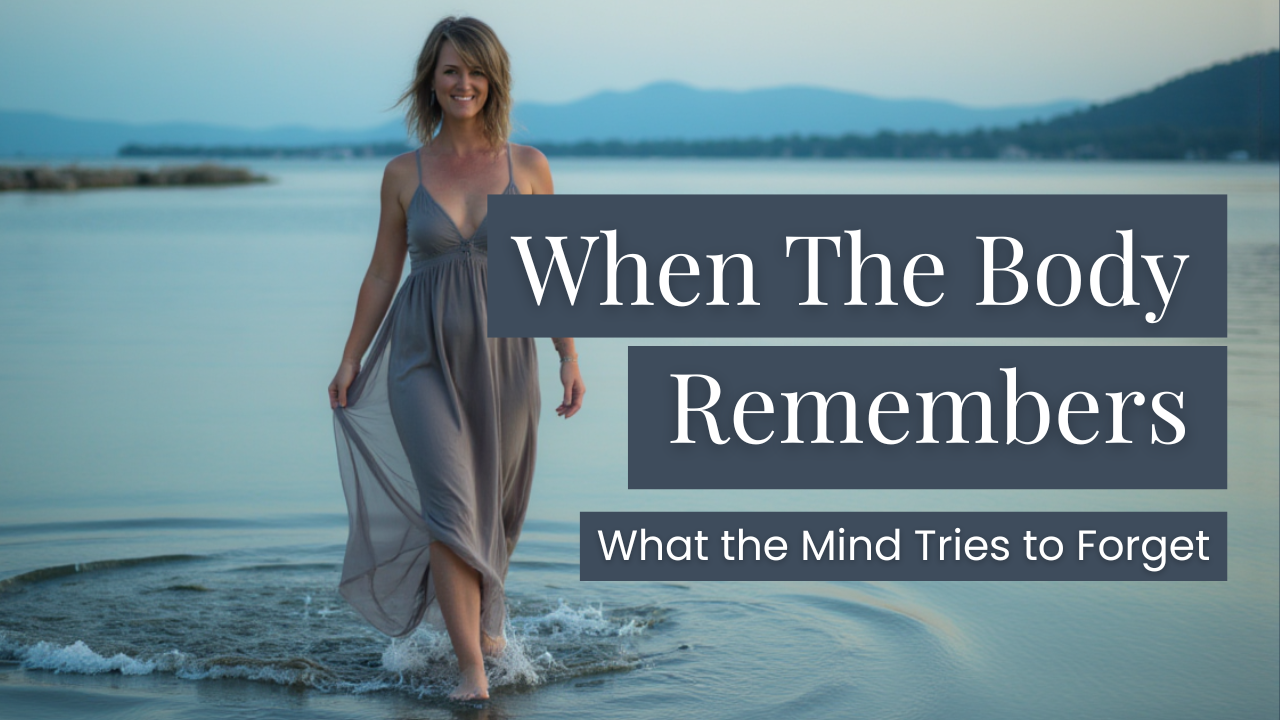How I Became an Accidental Healing Breathwork Guide
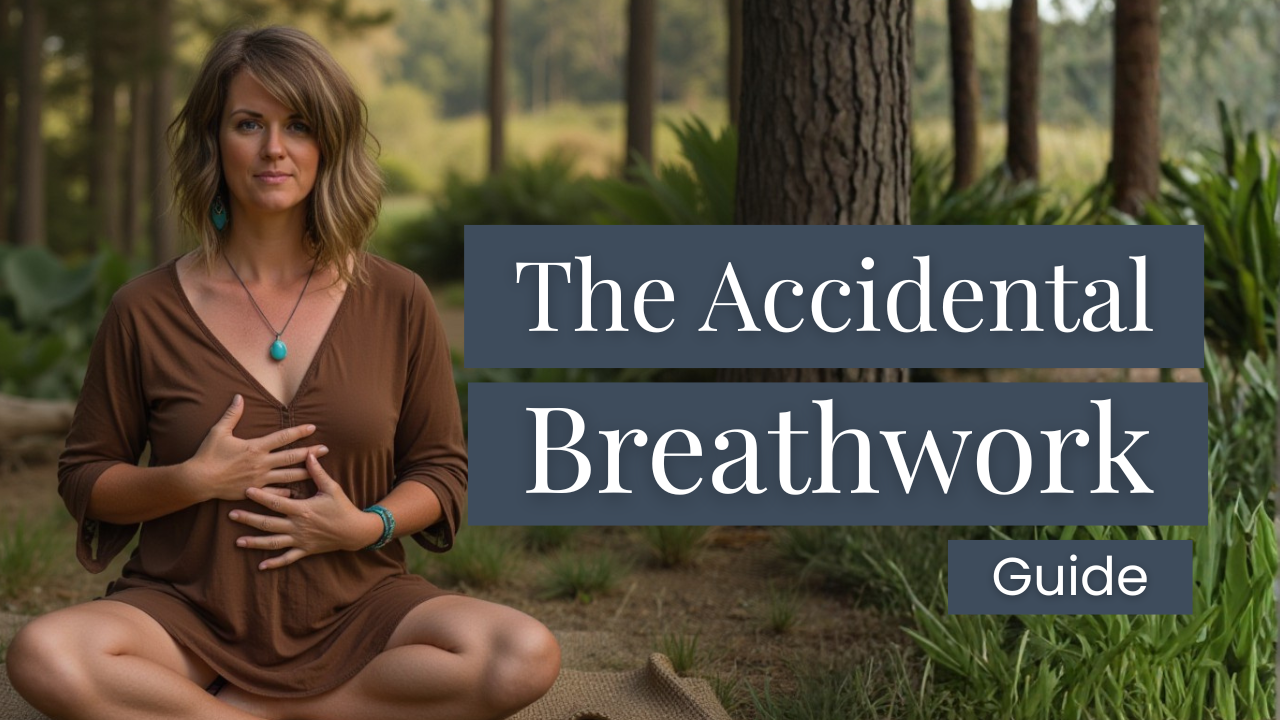
I’ve never shared this story before. At the time, it was all too raw and emotionally charged to talk about - but now, with some space and perspective, I’m ready.
I didn't choose Breathwork - it chose me.
People often ask me how I got into guiding breathwork journeys. The truth is, I had to go on a journey of my own first - one that took me through some of the hardest, most confronting moments of my life.
I never really planned to - it wasn’t a career goal or some grand vision. It started in the middle of the night, holding my son as he looked at me with desperate eyes, "please help" gasping for air, waiting for the ambulance to arrive, during another bout of croup.
Those moments were terrifying. Helpless. Watching your child struggle to breathe, flopping around like a fish out of water, not being able to help, does something to you.
That’s when breath stopped being something I took for granted and became something I needed to understand - deeply.
What started as a desperate need to help him became a journey that cracked me open and, over time, led me to guiding others.
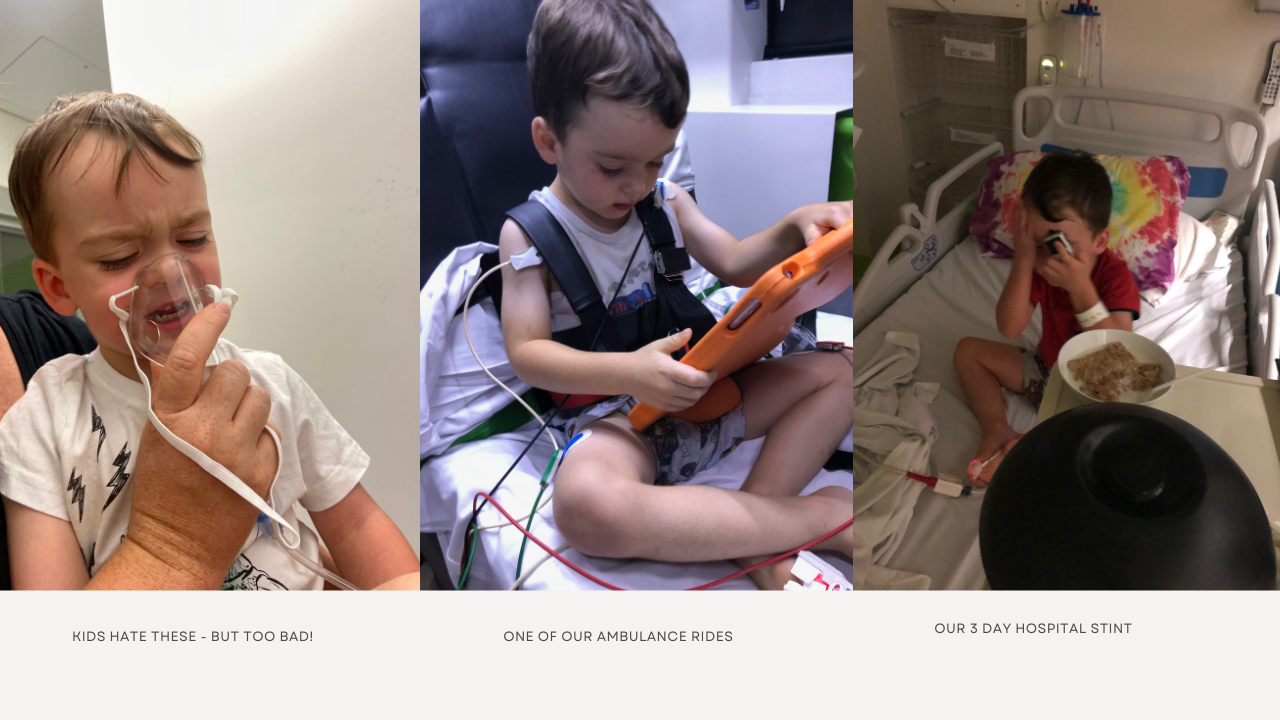
Breathing Techniques were Not New to Me
Breathwork wasn’t completely new to me - I’d first encountered it through my yoga and meditation training. In fact, I’d used it during both my labours, choosing breath and relaxation over pain medication. It had always been a quiet companion in intense moments, but I hadn’t yet grasped how powerful it truly was.
My first son used to get croup like clockwork - every 4 to 6 weeks from the time he was just 10 months old. If you’ve ever experienced croup, you’ll know the sound: that sharp, barking cough that sends your heart racing. The panic. The urgency. (Croup is a viral illness in kids that causes a barking cough that inflames the upper airway - which narrows the airways and makes breathing noisy and difficult.).
We had countless sleepless nights in emergency departments and more hospital stays than I can count. While some kids get croup a few times without much drama, for some reason, it hit my son HARD - every single time (and still does, even though people said he'll grow out of it by the time he's 5 or 6. he's now 8)
We asked all the questions. “Is it because he was born five weeks early?” “Could it be a food allergy?” “Is it because he’s a mouth breather?”
There was one Night that will Stay Etched in my Memory Forever.
We’d already been to the hospital and back, thinking we were in the clear - but things took a turn fast. His breathing deteriorated quickly, and we had to call an ambulance again. The paramedics arrived and administered adrenaline to get him breathing. We were rushed straight back to the hospital.
As I lay next to him in the emergency room, I overheard the nurse and the paramedic having a tense conversation. The paramedic calmly said,
“When we arrived, he fit all the criteria for adrenaline.”
The nurse just shook her head, clearly disagreeing, and he left.
I remember the paramedic, standing in our home, on his iPad, asking me questions as he went through his checklist, back and forth monitoring my son.
But within the hour, my son crashed again - gasping, struggling. This time, that same nurse was the one urgently giving him the adrenaline. I quietly told her I’d heard her questioning the paramedic earlier - and that this was exactly why he made the call. She paused and said, “I’m sorry. I get it now.”
It happened another time after this that night.
She looked at me and said, “We’ve done all we can. If it happens again… we’ll need to ventilate him.”
My stomach dropped. The thought of my tiny boy being ventilated - tubes, machines, the whole thing - was horrifying.
Searching for Answers
We were searching for answers, desperate to understand why this kept happening and if there was something we could do to help. And while each question opened up a new path of investigation.
In those long nights sitting beside him, I began to truly understand the power and fragility of the breath. And I dove headfirst into studying the biology, neurophysiology, and even the evolutionary patterns of breathing. I wanted to understand what was happening in his body - and how to support his healing naturally.
One thing that stood out through those episodes: he was a mouth breather. At first, I didn’t think much of it. But as I began to study more, I learned that chronic mouth breathing, especially in children, can have a profound impact on health. It affects everything from immune function and sleep quality to jaw development and stress levels. That was a turning point for me.
In 2020, James Nestor’s Breath: The New Science of a Lost Art was released. I bought a copy right away, eager to dive in - but between the chaos of mum life and sleep-deprived nights, it sat mostly unread. Eventually, I gave in and grabbed the Audible version, so I could finally listen while multitasking (usually with a child on my hip).
The book explores the science and history of breathing, examining how modern lifestyles have led to improper breathing habits and the health consequences that ensue. Nestor delves into ancient practices and contemporary research to uncover techniques that can improve breathing and overall well-being.
Breath is Life
Listening to it was a game-changer. I started to realise just how much our breath influences EVERYTHING -our sleep, stress levels, immune system, even our facial structure. The part that really hit home was how detrimental mouth breathing can be, especially for children. Suddenly, so much about my son’s struggles started to make sense, and I knew I had to go deeper.
The book also mentioned Buteyko breathing, a method I’d heard of before through the Natural Health Society of Australia (I was a member) but never fully explored. Learning about it again, and in the context of Nestor’s research, gave me a fresh perspective on how intentional breath control could actually retrain the nervous system and improve health - especially by encouraging nasal breathing and reducing over-breathing.
This wasn't connected to his croup but I knew it could help his mouth breathing habit. We started doing some of the Buteyko Breathing for kids. My son would do it in his own toddler way. He was about 3 years old at the time.
I dove headfirst into reading every Patrick McKeown’s books, The Oxygen Advantage and The Breathing Cure, like I was trying to win a breathwork bookworm championship - no page left unturned, no breath technique unexplored.
Then, out of the blue, he was interviewed by the founder of one of the yoga schools where I studied often to gain certifications. It’s funny how those little “coincidences” seem to guide you further and further along the path, like the universe quietly nudging you in the right direction. I attended his short training and kept gong with this "breath thing".
I did some of his courses, they were amazing but I wasn't wholy satisfied. I'd done Whim Hoffs technique for years and started learning more about that.
I was gaining traction and quietly obsessed with learning everything I could about breathwork. Even though I knew it couldn’t stop my son from getting croup, I started using breathwork techniques to regulate my own stress and anxiety—the tight knot in my chest that would tighten every time he struggled to breathe.
I learned about co-regulation - the way our nervous systems can sync up with others, especially between parent and child. I would intentionally slow my breath, soften my tone, and create a calm space, hoping to help him feel safer and more settled during those frightening episodes.
It worked every time.
The Power of Co-regulation
My husband would sometimes yell out, half in panic and half in hope, “Just do your magic woo-woo thing!” As I rushed to my son’s room, I’d focus on grounding myself—slowing my racing heart and diving deep within to fully regulate my own nervous system. I knew that by staying calm and centred, I could become a steady source of safety and comfort for him, helping his own breath and nervous system find their way back to balance. This is co-regulation in action.
Within minutes, I would feel his little tense body begin to relax, his breathing slowly steadying as the panic started to ease. That quiet shift - his calming down in my arms—was a powerful reminder of how deeply connected breath and safety truly are.
This was the power of co-regulation.
I have to be honest. Before I learned to do this, my body’s stress response went into full panic mode. Think anxiety times a thousand! The moment I heard that barking cough, my heart would rocket into the stratosphere, my own breath would get all tangled, and, I'd gasp for air myself, I'd shake from head to toe and well… let’s just say explosive diarrhoea became an unwelcome but very predictable side effect. Every. Single. Time. I'd have to stop at the loo, let go and then get into action. Gross but unfortunately true.
Trauma Training and Healing
I’d already been a certified Life Coach for over 10 years, but these experiences pushed me to expand my knowledge. I completed Trauma Training for Yoga in 2020 and then went on to become a trauma-informed Life Coach.
Through the work of pioneers like Dr. Peter Levine, I learned how trauma lives in the body, and how safety, breath, and nervous system regulation are key to healing - not just in theory, but in the raw, real-life moments of parenting on the edge.
In moments of crisis, especially with my son, I came to understand the deep importance of being a resource - not just a parent, but a steady, grounded presence his nervous system could lean on.
In trauma work, a “resource” refers to anything or anyone that brings a sense of safety, stability, and support. And when a child is struggling to breathe, that resource needs to be rock-solid.
Looking back, I didn’t realise it at the time, but I was unknowingly (and kinda unwillingly) training to become a co-regulation superstar and a rock-solid resource - two essential skills when it comes to safely and powerfully guiding others through breathwork journeys.
I Had to Listen to the Call...
So I got curious. As I continued my study and research, I discovered that Breathwork was being used with people living with PTSD (Post Traumatic Stress). Since I often work with clients navigating trauma, I’m always searching for ways to support them more deeply.
Through my yoga and kinesiology training (which is rooted in Traditional Chinese Medicine) - I’d already developed a deep understanding of how unresolved stress, suppressed emotions, and trauma are stored in the body. And when I took Trauma-Informed Yoga training, one of the recommended reads was The Body Keeps the Score by Bessel van der Kolk.
That book was a turning point. It made something click.
I realised I needed to explore this for myself first. It was during COVID, so I signed up for online sessions and began going on deep guided breath journeys with incredible facilitators like Scott Schwenk, Brian Kelly from Breath Masters, and others.
What I found… wasn’t gentle. It was raw, confronting, yet incredibly cathartic. I released things I didn’t even know I’d been holding on to- grief, tension, stories trapped in my body for years.
Then, in one of those perfectly-timed “coincidences,” I ran into someone I knew through my work at the local gym. She happened to have been recently certified as a Breathwork facilitator and had just started hosting sessions. I went along to one. Then another. Eventually, I invited her to facilitate at my own events - until finally, I followed the call, completed the training and became a certified Breathwork facilitator myself.
I now facilitate deep healing journeys through body and breath
Breathwork found me in the thick of it - during the chaotic nights of croup and ER visits, in those trembling moments when I didn’t know what else to do except breathe. It met me not in a yoga studio or a retreat centre, but on the floor of my son’s room, grounding myself as I became his anchor.
It became my medicine before it became my mission.
As I kept exploring, studying, and surrendering to the breath, something shifted. I began to understand not just how powerful the breath is in regulating the nervous system, but how deeply it can open doors to healing - stored emotion, suppressed stories, old pain, even trauma that words alone can’t reach.
This isn’t just a wellness tool or a trendy practice. It’s a remembering. A homecoming. A way to return to yourself - fully, gently, and truthfully.
These days, I get to walk beside others on that path. I get to guide breath journeys where people soften, unravel, release, and reconnect. And honestly? It still humbles me every single time.
The courage of my clients at how easily they can let go and trust me with their life stories, their grief and pain. I honour them.
I Didn't go Looking for This
I didn't go looking to do this. It somehow found me. I knew I needed to surrender it as I now realise people need this work more than ever in the history of our existence. We know there's more stress, more anxiety, more depression, suicide and illness than ever before.
I thank and honour my son, who's now 8 and still gets croup.... But you know what. It doesn't petrify him anymore. He used to get so very scared when he heard that cough, because he knew that it bought the terror of not being able to breathe. He now regulates himself. His own stress, his own anxiety with yep, you got it. The breath. He has become his own resource and that is powerful.
Although I wouldn't wish it upon anyone, seeing your Childs lips go blue, screeching for air, I can't somehow think that it was part my, part of his journey, in this life. He's been my greatest teacher (I type this through teary eyes).
So if something in you is stirring… if your nervous system is calling for relief, or your heart is whispering that there’s more - more peace, more freedom, more you -then maybe this is your invitation.
I’d love to welcome you to one of my upcoming Breathwork Journeys or Retreats. These are sacred spaces to land, to feel safe in your own body, and to remember the healing wisdom you already carry within you.
Checkout my What's on page HERE
Because sometimes, one conscious breath really is the beginning of everything.
Thank you for not reading about my story but my beautiful son's story of courage and resilience.
Much love and bodily wisdom
Larissa xx
P.S The Next Healing Breath Journey will be Facilitated at our Winter Solstice Deep Rest Retreat CLICK HERE FOR DETAILS
Enjoying our Content? Turn Inspiration into Action!
Be the first to grab new Podcast Episodes, Healing Practices and ignite your Motivation, all delivered to your inbox.
Hang together forever or opt out anytime


